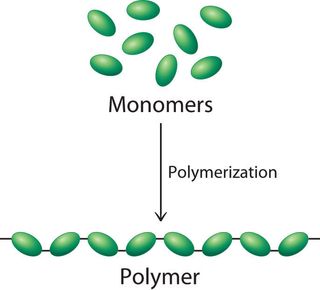Cutting-edge Polymers: Reinventing Modern Production
Cutting-edge Polymers: Reinventing Modern Production
Blog Article
Checking Out the Varied Applications and Benefits of Polymers in Different Industries
Polymers, with their varied range of residential or commercial properties and capabilities, have ended up being vital in different sectors, each reaping unique benefits from their application. From improving safety and security and efficiency in the automobile field to revolutionizing medical tools in the health care market, polymers play a critical role.
Automotive Sector Applications
Polymers play a critical function in boosting the efficiency and sturdiness of various parts within the vehicle market. One noticeable usage of polymers in the vehicle industry is in the manufacturing of lightweight components.

Healthcare Market Advantages
In different medical care applications, the benefits of making use of polymers are commonly identified for their varied array of beneficial residential properties. Polymers play a crucial role in the healthcare industry because of their versatility, biocompatibility, and cost-effectiveness. One of the primary advantages of polymers in healthcare is their ability to be customized to details requirements, such as flexibility, resilience, and biodegradability, making them optimal for a variety of medical applications.
Polymer-based materials are thoroughly made use of in clinical gadgets, such as catheters, implants, prosthetics, and drug delivery systems, as a result of their biocompatibility and capacity to simulate natural cells. These products can minimize the danger of allergies or beings rejected, improving client safety and end results. Furthermore, polymers are lightweight, making them suitable for wearable clinical gadgets and guaranteeing patient convenience.
Moreover, polymers enable the growth of innovative therapy techniques, such as hydrogels for cells engineering and nanocomposites for targeted drug shipment. Their ease of handling and sterilization makes them crucial for preserving high criteria of hygiene in healthcare settings. On the whole, the varied benefits of polymers contribute significantly to innovations in medical modern technology and patient care.
Ecological Advantages of Polymers

Furthermore, polymers can contribute to energy cost savings as a result of their light-weight nature. In sectors such as transport, lightweight polymer materials can help minimize gas intake and greenhouse Visit This Link gas exhausts. In addition, polymers can enable the development of energy-efficient products such as insulation materials that enhance power preservation in structures.
In addition, polymers play an important function in minimizing water air pollution. As an example, using polymer-based filtering systems can successfully get rid of pollutants and contaminants from wastewater, protecting water sources and ecosystems. Generally, the ecological advantages of polymers make them beneficial properties in advertising sustainability and eco-friendly practices throughout different industries.
Polymers in Electronic Devices and Innovation
Considering the increasing demand for ingenious and sustainable options in modern-day markets, the combination of sophisticated polymer technologies in the world of electronic devices and modern technology has emerged as a pivotal method for driving effectiveness and efficiency. Polymers have revolutionized the electronic devices market by making it possible for the production of lighter, more adaptable, and resilient digital gadgets. From mobile phones to medical gadgets, polymers play an essential function in improving product style and functionality.
One considerable advantage of polymers in electronics is their shielding residential or commercial properties, which aid safeguard fragile electronic elements from ecological elements and electric disturbance. Additionally, polymers are necessary in the development of versatile display screens, wearable technology, and published electronic devices, providing limitless opportunities for creating wise and interconnected tools.
Furthermore, using polymers in digital product packaging has caused advancements in miniaturization and thermal administration, boosting the total performance and reliability of electronic systems. As modern technology remains to evolve, the convenience and adaptability of polymers will definitely drive better innovation in the electronics market, forming the future of modern technology.
Role of Polymers in Construction and Facilities
The assimilation of innovative polymer products in construction and infrastructure projects has reinvented the means frameworks are made and built in contemporary times. Polymers offer countless benefits in the building and construction sector as a result of their convenience, longevity, and cost-effectiveness. One crucial duty of polymers in building and construction is their use in finishes and sealers, offering security against ecological factors such as wetness, UV radiation, and go rust. Furthermore, polymers are used in the manufacturing of light-weight and high-strength composite products, improving the structural integrity of he has a good point structures while lowering general weight.
Furthermore, polymers play an important role in sustainable building and construction methods by enabling the growth of energy-efficient structures. Shielding materials made from polymers aid control interior temperatures, reducing the requirement for heating and cooling down systems and ultimately reducing power usage. The use of polymer-based compounds in infrastructure jobs such as bridges and roadways enhances their durability and reduces maintenance prices. Overall, the consolidation of polymers in building and construction and facilities displays their substantial effect on modern-day design practices.
Final Thought
To conclude, polymers play a crucial role in different markets such as vehicle, medical care, ecological, electronic devices, and building and construction. Their flexible residential or commercial properties make them useful in developing cutting-edge remedies and items. From enhancing gas efficiency in lorries to enhancing clinical tools, polymers offer numerous advantages. Additionally, their impact on minimizing waste and promoting sustainability highlights their importance in modern applications. The widespread usage of polymers shows their significant contribution to advancing technology and improving lifestyle.
Report this page